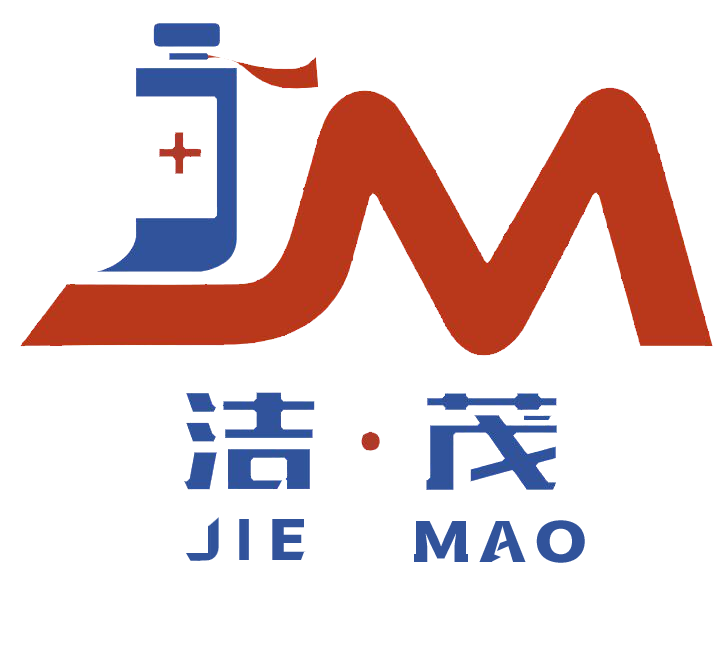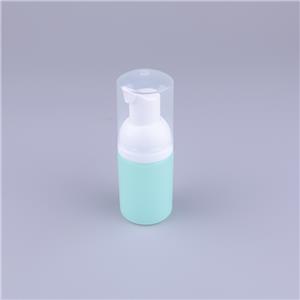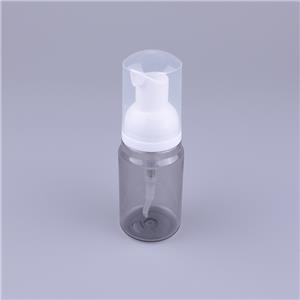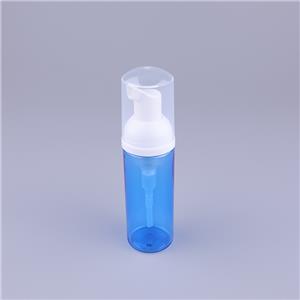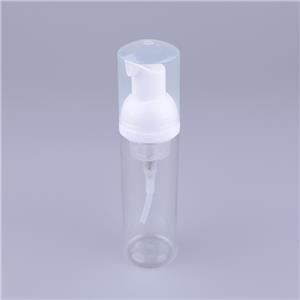- nach Hause
- >
- Nachrichten
- >
- Öffentliche Informationen
- >
- Spezialkunststoffprodukte: Kernmaterialunterstützung für die High-End-Fertigung
Spezialkunststoffprodukte: Kernmaterialunterstützung für die High-End-Fertigung
Spezialkunststoffe spielen als High-End-Produkte der Kunststofffamilie aufgrund ihrer hervorragenden Leistungsfähigkeit in verschiedenen Schlüsselbereichen der modernen Industrie eine unersetzliche Rolle. Im Vergleich zu herkömmlichen Kunststoffen und herkömmlichen technischen Kunststoffen behalten Spezialkunststoffe auch unter anspruchsvolleren Umgebungsbedingungen ihre stabile Leistung und erfüllen die strengen Anforderungen hochwertiger Fertigungsindustrien wie der Luft- und Raumfahrt, der elektronischen Informationstechnologie, der Automobilherstellung und der Medizintechnik an leistungsstarke und multifunktionale Materialien. Sie entwickeln sich zunehmend zum zentralen Materialträger für die Förderung industrieller Modernisierung und technologischer Innovation.
1. Leistungsmerkmale spezieller Kunststoffprodukte
Der Grund, warum sich Spezialkunststoffprodukte in High-End-Anwendungen hervortun, liegt vor allem in ihrer einzigartigen und hervorragenden Leistung, die eine solide Grundlage für ihren zuverlässigen Einsatz unter extremen Bedingungen bildet.
Hervorragende Hitzebeständigkeit
Die Dauergebrauchstemperatur spezieller Kunststoffprodukte liegt in der Regel über 150 °C. Einige Produkte können sogar in Umgebungen mit hohen Temperaturen von 200 °C oder sogar 400 °C über lange Zeit stabil arbeiten. Beispielsweise kann die Dauergebrauchstemperatur von Polyetheretherketon (PEEK) 260 °C bis 280 °C erreichen, die Kurzzeitgebrauchstemperatur kann bis zu 330 °C ansteigen. Diese hervorragende Hitzebeständigkeit macht es zum bevorzugten Material für die Herstellung von Hochtemperaturkomponenten wie Flugzeugtriebwerken und industriellen Hochtemperaturgeräten.
Ausgezeichnete chemische Stabilität
Spezielle Kunststoffprodukte weisen eine extrem hohe Beständigkeit gegen chemische Korrosion auf. Wie Polytetrafluorethylen (PTFE) ist es gegenüber fast allen chemischen Reagenzien inert und kann daher nur schwer durch starke Säuren, Basen oder oxidierende Substanzen angegriffen werden. Daher wird es häufig in Chemiepipelines, Reaktorauskleidungen und anderen Bereichen eingesetzt und gewährleistet den langfristigen sicheren Betrieb von Geräten in komplexen chemischen Umgebungen.
Hervorragende mechanische Eigenschaften
Obwohl Spezialkunststoffe eine relativ geringe Dichte aufweisen, zeichnen sie sich durch hohe Festigkeit und hohen Elastizitätsmodul aus. Polyimid (PI) beispielsweise erreicht eine Zugfestigkeit von 100–300 MPa und verfügt über eine ausgezeichnete Ermüdungs- und Verschleißfestigkeit. Es behält auch bei langfristiger Wechselbelastung und Reibung seine gute Leistung und erfüllt die strengen Anforderungen an die mechanischen Materialeigenschaften von Strukturkomponenten in der Luft- und Raumfahrt, hochwertigen mechanischen Teilen usw.
Gute elektrische Isolierung
In der Elektronik und Elektrotechnik bieten spezielle Kunststoffprodukte erhebliche Vorteile hinsichtlich der elektrischen Isolationsleistung. Flüssigkristallpolymere (LCP) beispielsweise haben nicht nur eine niedrige Dielektrizitätskonstante, sondern auch minimale dielektrische Verluste. Dadurch kann eine stabile elektrische Leistung in Hochfrequenzumgebungen aufrechterhalten und Dämpfung und Störungen bei der Signalübertragung effektiv reduziert werden. Daher finden sie wichtige Anwendungen in 5G-Kommunikationsgeräten, elektronischen Hochfrequenz-Leiterplatten und anderen Bereichen.
2. Gängige Kategorien von Spezialkunststoffprodukten
Spezialkunststoffprodukte umfassen mehrere Kategorien, von denen jedes aufgrund seiner einzigartigen Eigenschaften in bestimmten Bereichen einen unersetzlichen Wert aufweist.
Polyetheretherketon (PEEK)
PEEK, ein teilkristallines, thermoplastisches aromatisches Polymermaterial, verfügt über hervorragende Gesamteigenschaften. Es zeichnet sich nicht nur durch gute Hitzebeständigkeit, chemische Stabilität und mechanische Eigenschaften aus, sondern lässt sich auch hervorragend verarbeiten und kann durch verschiedene Verfahren wie Spritzguss, Extrusion und Formpressen zu komplex geformten Bauteilen verarbeitet werden. In der Luft- und Raumfahrtindustrie wird PEEK häufig zur Herstellung von Komponenten für Flugzeugtriebwerke, Kraftstoffsystemkomponenten und Gehäusen für elektronische Fluggeräte verwendet. Im medizinischen Bereich eignet es sich aufgrund seiner guten Biokompatibilität zur Herstellung hochwertiger medizinischer Geräte wie künstlicher Gelenke und Wirbelsäulenimplantate.
Polyimid (PI)
PI ist eine aromatische heterozyklische Polymerverbindung mit einem Imidring (-CO-NH-CO-) in der Hauptkette des Moleküls. Seine wichtigsten Eigenschaften wie elektrische Isolierung, mechanische Eigenschaften und chemische Stabilität bleiben über einen weiten Temperaturbereich von -269 °C bis 400 °C unverändert. In der Elektronikindustrie ist PI-Folie ein ideales Substrat für flexible Leiterplatten (FPCs), da sie den Anforderungen an Miniaturisierung, geringes Gewicht und hohe Zuverlässigkeit elektronischer Produkte gerecht wird. In der Luft- und Raumfahrt können PI-Materialien zur Herstellung von Wärmeschutzschichten, Isolationskomponenten usw. für Raumfahrzeuge verwendet werden, die extremen Temperaturen und Strahlung im Weltraum effektiv widerstehen.
Polyphenylensulfid (PPS)
PPS besteht aus abwechselnd angeordneten Benzolringen und Schwefelatomen und weist eine regelmäßige Molekülstruktur und eine hohe Kristallinität auf. Es weist eine ausgezeichnete chemische Korrosionsbeständigkeit auf und widersteht der Erosion durch verschiedene starke Säuren, starke Basen und organische Lösungsmittel. Gleichzeitig weist es eine gute thermische Stabilität auf und kann lange Zeit bei Temperaturen von 220 °C bis 240 °C eingesetzt werden. In der Automobilindustrie wird PPS häufig zur Herstellung von Motorperipheriekomponenten wie Ansaugkrümmern und Kraftstoffpumpengehäusen usw. verwendet, wodurch das Komponentengewicht effektiv reduziert, der Kraftstoffverbrauch gesenkt und die Zuverlässigkeit von Kraftfahrzeugen verbessert werden kann. Im Bereich elektronischer Geräte kann PPS zur Herstellung von Steckverbindern, Spulenrahmen usw. verwendet werden, um den Einsatzanforderungen in Umgebungen mit hohen Temperaturen und hoher Luftfeuchtigkeit gerecht zu werden.
Flüssigkristallpolymer (LCP)
LCP ist ein aromatisches Polyestermaterial mit einer großen Anzahl starrer Benzolringstrukturen in der Hauptkette und einzigartigen Flüssigkristalleigenschaften. Während des Formprozesses können sich LCP-Moleküle automatisch ausrichten und hochgeordnete Strukturen bilden, wodurch das Produkt eine extrem hohe Festigkeit und Elastizität erhält. LCP hat einen sehr kleinen linearen Ausdehnungskoeffizienten sowie eine extrem hohe Maßgenauigkeit und Stabilität. Im Bereich der Elektronik und Elektrogeräte, insbesondere in Antennen, HF-Steckverbindern und Chipgehäusen von 5G-Kommunikationsgeräten, hat sich LCP aufgrund seiner hervorragenden elektrischen Leistung und Maßstabilität zu einem Schlüsselmaterial für die Miniaturisierung und Präzision leistungsstarker elektronischer Geräte entwickelt.
Polyarylethersulfon (PSF)
Die Hauptkette von PSF-Molekülen enthält Sulfongruppen (-SO₂-) und Arylengruppen, die je nach den verschiedenen synthetischen Monomeren in Polysulfon (PSU), Polyethersulfon (PESU) und Polyphenylensulfon (PPSU) eingeteilt werden können. PSF ist hitzebeständig und hält bei längerer Verwendung Temperaturen von über 180 °C stand. Gleichzeitig verfügt es über hervorragende mechanische Eigenschaften mit einer Zugfestigkeit von über 70 MPa und hervorragender Feuchtigkeits- und Hitzebeständigkeit. Seine Lebensdauer in einer Dampfumgebung von 145 °C beträgt mindestens 12 Jahre. Im Bereich der Medizintechnik wird PSF häufig zur Herstellung medizinischer Einwegprodukte wie Hämodialysemembranen und Infusionssets verwendet. Aufgrund seiner hohen Sicherheit erfüllt es die Lebensmittel- und Hygienestandards der US-amerikanischen FDA (Food and Drug Administration) und der Europäischen Union. In der Luft- und Raumfahrt kann PSF zur Herstellung von Innenausstattungen, Gehäusen für elektronische Geräte usw. von Flugzeugen verwendet werden, wodurch das Gesamtgewicht des Flugzeugs reduziert und gleichzeitig die strukturelle Festigkeit gewährleistet werden kann.
3. Produktionsprozess und technische Schwierigkeiten
Die hohen Leistungsanforderungen an Spezialkunststoffprodukte bestimmen die Komplexität und den technischen Schwierigkeitsgrad ihrer Produktionsprozesse, und jeder Spezialkunststofftyp verfügt über seinen eigenen einzigartigen Produktionsprozess und seine eigenen technischen Schlüsselknoten.
Rohstoffsynthesetechnologie
The synthesis of special plastics often requires precise control of reaction conditions and raw material ratios. Taking the synthesis of PEEK as an example, nucleophilic substitution reaction is usually used, with 4,4 '- difluorobenzophenone and hydroquinone as the main raw materials, and polymerization reaction is carried out in the presence of strong polar solvents and alkali metal carbonates. During the reaction process, factors such as temperature, pressure, reaction time, and purity of the raw materials can significantly affect the molecular weight, molecular structure, and properties of the polymer. Therefore, highly precise process control and advanced reaction equipment are required.
Aggregation process control
During the polymerization process, the polymerization reaction rate, molecular weight distribution, and microstructure of the polymer of special plastics need to be strictly controlled. For example, the polymerization process of PI is usually divided into two steps. Firstly, the binary anhydride and binary amine undergo low-temperature condensation reaction in a polar solvent to generate a polyamide acid prepolymer. Then, the polyamide acid is converted into PI through thermal imidization or chemical imidization. In this process, the degree and method of imidization directly determine the performance of PI, and precise control of reaction temperature, time, and the amount of imidization reagent is required.
Forming processing technology
The molding and processing of special plastic products also face many challenges. Due to its high melting point and high melt viscosity, it requires strict parameters such as temperature, pressure, and shear force for processing equipment. Taking the injection molding of LCP as an example, the injection temperature usually needs to reach 300 ℃ -350 ℃, and the mold temperature also needs to be controlled at a high level to ensure that LCP molecules can be fully oriented and crystallized, thereby obtaining good product performance. In addition, due to the extremely high requirements for dimensional accuracy and surface quality of special plastic products, advanced mold design and precision processing techniques such as high-speed precision injection molding and microforming technology are also needed during the molding process.
4、 Application Fields and Typical Cases
Special plastic products, with their excellent performance, have been widely used in multiple high-end manufacturing fields, becoming a key force in promoting technological progress and product upgrades in various industries.
Aerospace field
In the aerospace industry, the application of special plastic products is extremely extensive. For example, the fuel injection system components of aircraft engines are usually made of PEEK material, which can withstand high temperatures, high pressures, and fuel corrosion, while also reducing component weight and improving engine fuel efficiency and performance reliability. In terms of spacecraft, the solar panel substrate of satellites is often made of PI composite materials. The high strength, low density, and excellent radiation resistance of PI materials can ensure the long-term stable operation of solar panels in harsh space environments, providing reliable energy supply for satellites.
In the field of electronic information
With the rapid development of the electronic information industry, the performance requirements for materials are increasing, and the application of special plastic products in this field is becoming increasingly important. LCP is widely used in the production of antennas and flexible circuit boards in electronic products such as smartphones and laptops. LCP antennas have the characteristics of low dielectric constant and low loss, which can effectively improve the efficiency and quality of signal transmission, meeting the demand for high-speed and high-frequency signal transmission in 5G communication; LCP flexible circuit boards have good flexibility and dimensional stability, which can achieve miniaturization and lightweight design of electronic products.
Automotive manufacturing field
In the field of automobile manufacturing, the application of special plastic products helps to achieve lightweighting and high performance of automobiles. For example, the intake manifold of a car engine is made of PPS material, which can reduce the weight of the intake manifold by 30% to 50% compared to traditional metal materials. At the same time, PPS can improve intake efficiency, reduce engine energy consumption and emissions. In addition, special plastics such as PEEK and PI are gradually being applied in the interior and exterior components of automobiles. For example, PEEK can be used to manufacture adjustment mechanisms and seat belt buckles for car seats, which can reduce component weight and improve the overall performance of the car while ensuring strength and safety.
Medical device field
In the field of medical devices, special plastic products have become ideal materials for manufacturing high-end medical devices due to their excellent biocompatibility, chemical stability, and mechanical properties. For example, PEEK material can be used to manufacture artificial joints and spinal implants. Its elastic modulus, which is similar to that of human bones, can effectively reduce stress shielding between implants and human bones, reduce the risk of implant loosening and fracture, and improve the service life of implants and the quality of life of patients. In addition, PSF materials are commonly used to manufacture the casing and dialysis membrane of blood dialyzers, and their good biocompatibility and chemical corrosion resistance can ensure the safety and effectiveness of the blood dialysis process.
5、 Market Development Status and Trends
In recent years, with the rapid development of the global high-end manufacturing industry, the market for specialty plastic products has shown a steady growth trend. According to market research institutions, the global market size of special engineering plastics has grown from 65.2 billion yuan in 2018 to 94 billion yuan in 2022, with a compound annual growth rate of 9.58% during this period; During the same period, the market size of China's special engineering plastics increased from 7.2 billion yuan to 13.5 billion yuan, with a compound annual growth rate of 16.9%. It is expected that by 2027, the global market size of special engineering plastics will reach 138.2 billion yuan, and the Chinese market size will reach 21.2 billion yuan with a compound annual growth rate of 9.53%. The growth rate of the Chinese market is higher than that of the same period in the world.
Capacity and supply-demand pattern
At present, the global production capacity of specialty plastic products is mainly concentrated in the hands of a few large chemical enterprises in developed countries and regions such as Europe, America, and Japan, such as DuPont in the United States, BASF in Germany, and Baoli in Japan. These enterprises dominate the high-end specialty plastic market with advanced technology and rich production experience. However, with the continuous growth of demand for specialty plastic products in Asian countries such as China and South Korea, as well as the improvement of local enterprise technology research and development capabilities, the proportion of production capacity in the Asian region is gradually increasing. In terms of supply and demand, due to the continuous expansion of the application fields of special plastic products, especially driven by emerging industries such as new energy vehicles, 5G communication, and aerospace, the market demand for special plastic products continues to be strong. However, there is still a shortage of supply for some high-end products, especially those with special performance and specification requirements, which rely heavily on imports.
Technological innovation drives development
Technological innovation is the core driving force behind the development of the special plastic product market. On the one hand, major enterprises and research institutions are continuously increasing their investment in the research and development of special plastic materials. Through molecular design, synthesis process optimization, and the addition of functional additives, they have developed new types of special plastic products with higher performance and better cost-effectiveness. For example, significant progress has been made in the research and development of bio based specialty plastics in recent years. Specialty plastic products prepared from renewable resources, such as bio based polyamides and bio based polyesters, not only have similar properties to traditional petroleum based specialty plastics, but also effectively reduce the carbon footprint of products, meeting the requirements of sustainable development. On the other hand, with the development of intelligent manufacturing technology, the production process of special plastic products is constantly achieving automation and intelligent upgrades. By introducing advanced production equipment and control systems, production efficiency is improved, production costs are reduced, and product quality stability and consistency are ensured.
Application Expansion and Market Prospects
With the continuous improvement of the performance of special plastic products and the gradual reduction of costs, their application fields will be further expanded. In terms of emerging industries, with the vigorous development of the new energy vehicle industry, the application of special plastic products in battery management systems, motor insulation, lightweight body structures, and other areas will experience explosive growth; In the field of 5G communication, with the comprehensive coverage of 5G networks and the continuous enrichment of application scenarios, the performance requirements for special plastic products in signal transmission, electromagnetic shielding, heat dissipation, and other aspects will become increasingly high, providing a broad market space for special plastic products. In addition, special plastic products will play an increasingly important role in fields such as healthcare, environmental protection, national defense, and military industry due to their unique performance advantages. It can be foreseen that the future market prospects for specialty plastic products will be broad and will become an important supporting force for promoting the development of high-end manufacturing worldwide.
